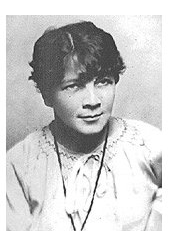Have you heard of Isabel Paterson?
She was born January 22, 1886, Manitoulin Island, Canada, and she is unquestionably the most underrated of all American political philosophers.
An autodidact and an extraordinarily formidable intellect, Isabel Paterson wrote many essays and books, but her best and most famous work is The God of the Machine, in which she wrote, among other things:
Government is solely an instrument or mechanism of appropriation, prohibition, compulsion, and extinction; in the nature of things it can be nothing else, and can operate to no other end…. Seen in this light, government is so horrific – and its actual operations in the past have been so horrible at times – that there is some excuse for a failure to realize its necessity (Isabel Paterson, The God of the Machine, 1943).
From Brittney Little’s excellent article:
Isabel Paterson is undoubtedly not as widely known as she deserves to be. Of course, we all know Ayn Rand but did you know that Rand admitted she owed an intellectual debt to Paterson? Well, you see, someone had to teach Rand about the wonders of the free market, and that teacher was Isabel Paterson. Paterson led a young group of writers in the late 1930s, and she would stay up all night long answering all of Rand’s and Rose Wilder Lane’s questions.
Paterson, Rand, and Lane, are considered to be the three founding mothers of libertarianism in America. So besides tutor those two ladies all night, what exactly did Paterson do? Paterson is noted for being a journalist, novelist, political philosopher, and a literary critic. According to her biographer, Stephen Cox, Paterson is the “earliest progenitor of libertarianism as we know it today.” She wrote about free trade and opposed the major economic program of her time, known as the New Deal. Paterson was in favor of less government involvement in both economic and social issues.
Something even more amazing about Paterson is how she came to be the woman she was. Her only formal education consisted of two years in a log schoolhouse on Manitoulin Island in Canada. She moved to the United States when she was young and became a US citizen in Michigan in the year 1928. Even though she was only schooled for two years, she took her education into her own hands. She spent many nights reading classical poetry and literature, which seemingly treated her well. Many credit the lack of government schooling for Paterson’s courageous and unregulated thinking.
We can also look to her past to help understand her economic beliefs. She was raised in a very poor family and had to work at a very young age to help chip in. Her family often lived in tents, and Paterson spent most of her days as a waitress, stenographer, and even a bookkeeper.
(Link)


Thank you, Ray. I hadn’t heard of either Paterson or Lane before, but will certainly check out both.